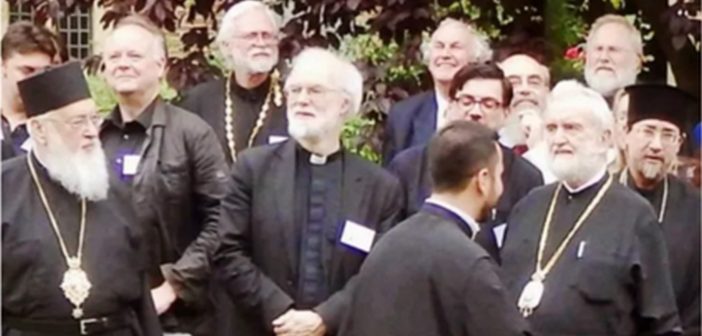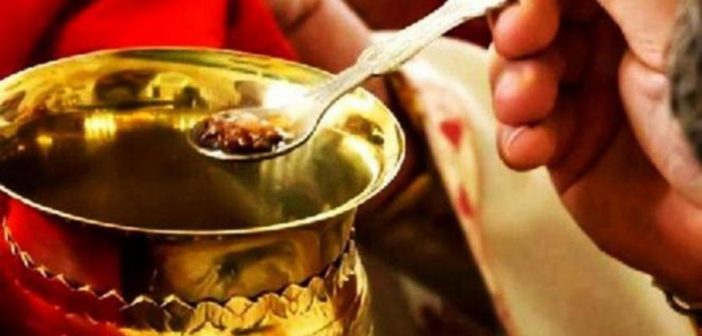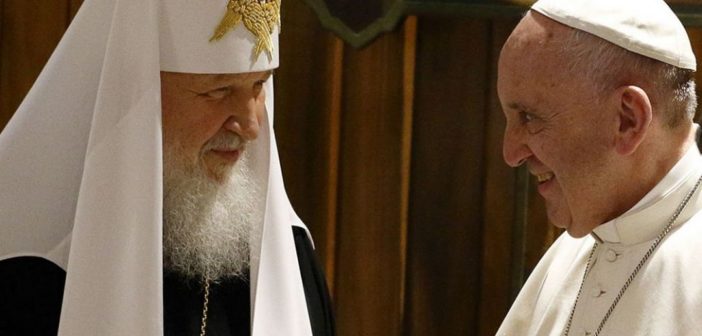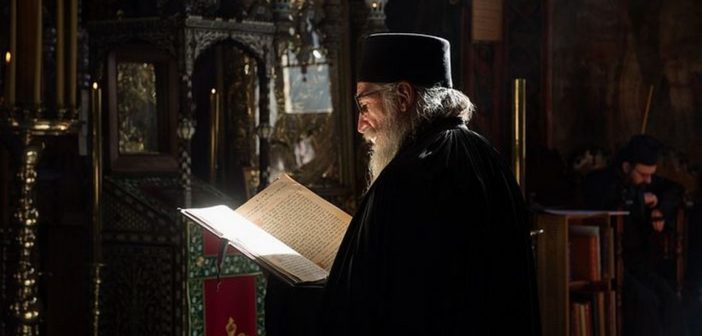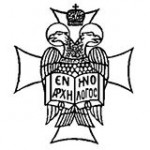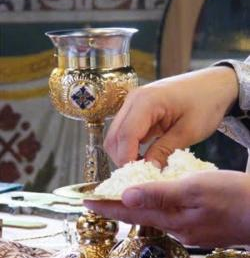Source: The Living Church By Richard Mammana Jr. Metropolitan John Zizioulas of Pergamon, one of the most influential Orthodox theologians of modern times, died on February 2. He was co-chairman of the International Commission for Anglican–Orthodox Theological Dialogue from 1989 to 2007. Zizioulas was born in 1931 in northern Greece, and studied at the University of Thessaloniki and the University of Athens before attending the World Council of Churches’ Ecumenical Institute of Bossey in 1955. After work as a professor of Church history and patristics in Greece, Zizioulas taught systematic theology and patristics in Edinburgh, Glasgow, and London from 1970 to…
Browsing: Eucharist
Source: Public Orthodoxy A SURVEY OF LITURGICAL SOURCES by Rev. Dr. Nicholas Denysenko The global COVID-19 crisis has ignited a number of difficult discussions among Christians. The method used to distribute Holy Communion is fiercely debated. In the Churches that remain open, many Protestants and Catholics are withholding the cup, so faithful are receiving in one kind only, the body of Christ. In Orthodox communities, clergy and laity are discussing the possibility of trying new methods for distributing Holy Communion that prevents the spread of disease through a common spoon. This issue has generated emotional statements claiming that it is impossible…
Source: Orthodoxia.info REVEREND DR. ALKIVIADIS C. CALIVAS Liturgical spoons existed from at least the sixth-seventh century.[1] But it does not mean that they were used for Communion. In fact, canon 101 of the Penthekte Synod (691-692) prohibits the use of any receptacle for the reception of the consecrated Bread other than the human hand.[2] The canon reads: “So that if anyone should wish to partake of the pure Body during the time of the synaxis…let him form his hands into the shape of a cross, and thus approaching, let him receive the communion of grace. For we nowise welcome those men who…
Source: National Catholic Reporter by John D. Faris In the midst of the COVID-19 pandemic, Pope Francis March 27 characterized the worldwide trauma as: “God’s call on people to judge what is most important to them and resolve to act accordingly from now on.” Can this occasion also be a time of deeper communion among us? Catholics, Orthodox and Oriental Orthodox hierarchs, pastors and faithful agree that the Eucharist, the body and blood of the Son of God, is the most precious gift of God to the church. It is of paramount importance to us! Nevertheless, while sharing the same belief in the…
Source: Orthodox Christianity We have all seen by now the disruptive reports describing in detail just how deadly and serious the coronavirus is. While that is true, the way that many within the Church are responding and, in particular, the guidance that we have received from many bishops, is disconcerting. We are directed now by hierarchs in several jurisdictions that the laity are to remain at home viewing the services via live-streaming, while the clergy are to serve a full cycle of services in near-empty churches, accompanied by a skeleton staff of altar servers and readers or singers. What is…
Source: Archdiocese of Thyateira and Great Britain by Ilias Levy People who are interested in knowing more about the Orthodox Church frequently ask about the practice of closed communion – that is, allowing only Orthodox Christians to receive Holy Communion in our churches. To some Orthodox it may seem that this is a somewhat bizarre issue to think worthy of an article. Indeed, perhaps it ought to be. Unfortunately, however, it is something about which there appears to be a certain amount of ignorance and confusion – to the extent where there have been very troubling instances of non-Orthodox being given…
Source: The National Herald by Theodore Kalmoukos One of the many issues revealed in TNH’s interview with Dean Poll, President of the Parish Council of the Archdiocesan Holy Trinity Cathedral of New York (Sept. 14), was that of the $1.9 million annual budget, $200,000 of it goes toward the choir – which includes expenses to hire professional singers, many of which are not Orthodox, or even Christian. Every Sunday they are paid, as professionals, to partake in the Holy Eucharist which is “the sacrament of the sacraments.” This unprecedented act proves very vividly the extreme secularization of the eschatological nature…
Source: Mystagogy The Nativity Fast in the Orthodox Church begins on November 15th. From that time until December 17th (or some observe December 12th) we fast from meat, milk products, and eggs, though fish is allowed. After the 17th (or 12th) we fast also from fish. But fasting from food, according to the command of our Lord, must go hand in hand with spiritual fasting in order for it to be beneficial and have a deeper meaning. For this reason it must be coupled with prayer and almsgiving. Hence, with these fasting periods the Church calls us also to a…

